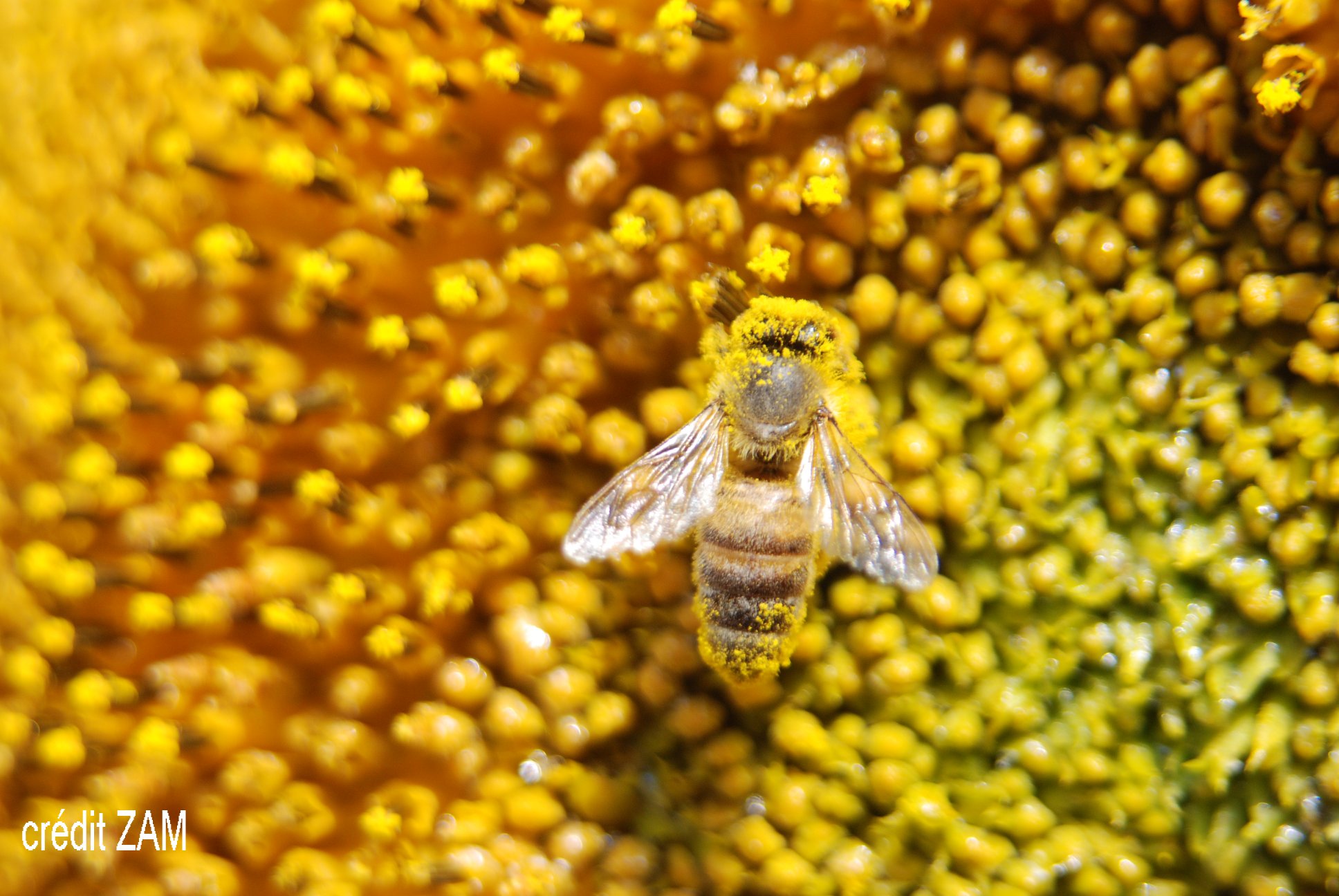
"Bee on sunflower - Lorraine - July 2018. Crédit: ZAM"
NéoNet – In situ analysis and quantification of the risk associated with the persistence of neonicotinoids in field crops in France
Appeared in the 1980s, marketed in the 1990s, neonicotinoids have since experienced a meteoric progression in terms of use. In France as in other countries, they are today massively used in the form of seed treatment. In recent years, several studies have shown the toxic, lethal or sublethal effects of these molecules on certain organisms, particularly the honeybee. While the Biodiversity Act 2016 provides for the ban of products of the neonicotinoid family in September 2018, there is no reference at the metropolitan level to the risks associated with the persistence of neonicotinoids.
NEONET proposes to analyze and quantify in situ the risk related to the persistence of neonicotinoids.. The persistence of neonicotinoids in the environment induces their presence in the nectar and pollen of untreated plants. Neonet studies the persistence in sunflower nectar and corn pollen. In 2019 rapeseed nectar will also be analyzed. These crops are widely used by bees (especially domestic), but are not necessarily present simultaneously. Chemical analyzes of samples taken will quantify the level of bee exposure to the top five neonicotinoids.

"Sampling rapeseed nectar - Côte-Saint-André (Isère) - 15/04/19. Crédit: ZAA"
The NEONET project brings together 10 partners and takes place on 20-30 sites, many of which belong to the RECOTOX network and the RZA. NEONET is therefore innovative in (i) its pedo-climatic and geographical coverage covering the main agricultural regions of France, (ii) the range of cropping systems and production situations, and (iii) the diversity of agricultural landscapes. NEONET also brings together interdisciplinary skills covering the scientific fields of agronomy, ecology, ecotoxicology, and statistics as well as technical skills / linkage with ADA / ACTA actors.
2018 Partners :
- Zone Atelier Arc Jurassien (RECOTOX site)
- Zone Atelier Armorique
- Zone Atelier Bassin du Rhône
- Zone Atelier Loire
- Zone Atelier Moselle (RECOTOX site)
- Zone Atelier Plaine & Val de Sèvre (RECOTOX site)
- Zone Atelier PYGAR
- Zone Atelier Seine (RECOTOX site)
- ITSAP
- Neuchatel University (Switzerland)
Principal investigator: Sabrina Gaba – Centre d’Etudes Biologiques de Chizé, INRA -
Find more in movies
- the movie shot by Lena Aebi during collection in summer 2018

